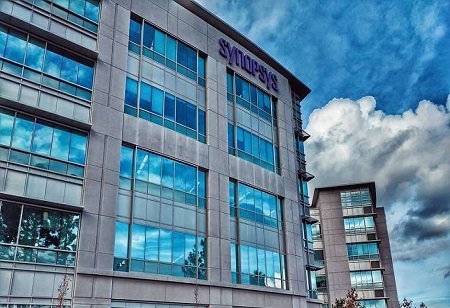Chip software maker Synopsys is shifting investment and engineer training to Vietnam while being "careful" in China, the firm told as the U.S. added its sector to an export control list targeting Asia's biggest economy.
Synopsys is one of a handful of U.S. companies that dominate the global market for electronic design automation (EDA), or chip design software. It announced on Friday that it will train electrical engineers in Vietnam and donate software licenses for a chip design center to the Southeast Asian country.
The EDA industry is smaller than semiconductor fabrication but is becoming a critical front in the chip war because Beijing has struggled to foster an alternative to the U.S. oligopoly.
Synopsys' move is a welcome one for Vietnam. Manufacturers such as Apple and Panasonic are flooding into the country, but growth in the chip industry had been glacial until Intel and Samsung began revving up investment two years ago.
Through partnerships with foreign players, the communist country could start off designing "mature" integrated circuits (ICs), such as for fridges and air conditioners, and then advance up the value chain, said Robert Li, Synopsys sales vice president of Taiwan, Southeast Asia and India. Li spoke to Nikkei after a news conference at Saigon Hi-Tech Park, where Synopsys unveiled its plan.
"Making a chip is like a baby. It takes nine months," he told reporters, standing across the street from Intel's largest chip test and assembly site globally. "If you want to design a new chip, it takes three years."
The Nasdaq-listed firm is among the EDA businesses that have lost executives to Chinese rivals but it also invested in one of those rivals, which is now being investigated for poaching Taiwanese employees.
The U.S. Commerce Department on Aug. 12 expanded the entity list that blocks exports to China to include EDA software, an industry in which Synopsys said the U.S. has a 97% global market share.
Vietnam was one of the countries Synopsys highlighted for investment in its latest earnings call, Sales Director Adrian Ng Siong Teck noted in an interview. China remains an important market, but "We also have to be a little bit careful," he said.
Saigon Hi-Tech Park and Synopsys sign a deal to train engineers in Vietnam to use electronic design automation (EDA), or chip design software, addressing a global shortage of workers.
He did not say how much more the software giant would invest in Vietnam, except to say the 30 licenses donated to the tech park are valued at $20 million. Synopsys has two offices in Ho Chi Minh City and two in Danang with more than 400 staffers and plans to add a further 300 to 400.
Chip engineers in Vietnam already design back-end computer programs for their parent companies, like Renasas or Ampere, and can build on that expertise, Teck said.
Vietnam has harbored dreams of getting a foothold in semiconductors for more than a decade.
"The global political economic context and Vietnam's political economic context is opening a new opportunity [to] realize our dream," said the Saigon Hi-Tech Park management board president, Nguyen Anh Thi.
As the industrial park works with universities and Synopsys to cope with a global tech talent shortage, Li said Vietnam could acquire skills from foreigners, then develop products for the domestic market of 99 million.
"There are so many firms to come to Vietnam for talent," he said. "They will bring the advanced projects for IC design. Once you accumulate enough experience, then you move to the next phase."
